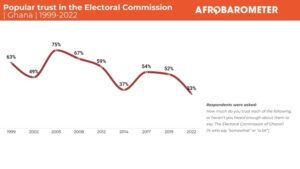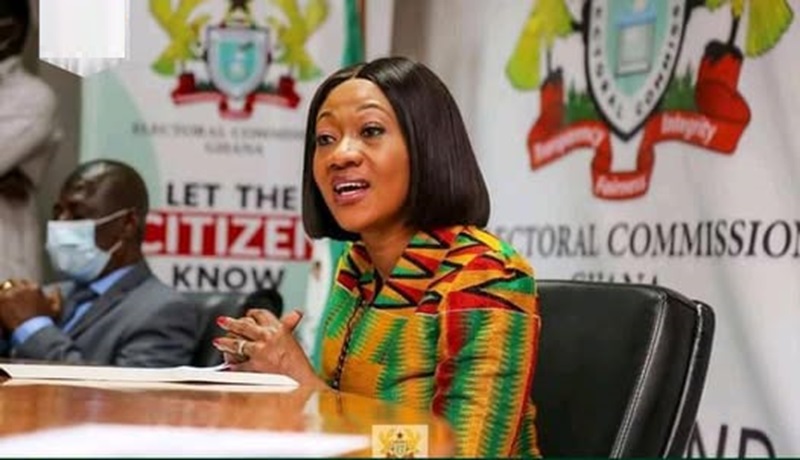The Electoral Commission (EC) of Ghana over every four-year cycle becomes the subject of intense public scrutiny, especially in the lead-up to and during general elections.
The Jean Mensa-led EC has had its fair share of such credibility attacks from the 2020 election when it emerged that the EC had posted three different results in the presidential race.
Then during the election petition hearing filed by candidate John Mahama after the 2020 elections, the Supreme Court ruling that Jean Mensa could not be forced to mount the witness box, deepened perceptions that the EC chair had evaded accountability for significant infractions in the election.
Since 2020, a series of events have played out in respect of the EC’s independence from political interference and the Commission’s own actions and inactions at the administrative level.
The latest credibility attacks on the EC have been around issues relating to the recall of and destruction of ballot papers, the issue of wrong serial numbers, and the rescheduling of special voting for two regions due to leakage of a ballot.
Then there was the issue of the EC’s unilateral decision to restrict the number of journalists at collation centers nationwide, a decision that has been rescinded following a total rejection by the Ghana Journalists Association and other stakeholders.
All of the above comes months after an Afrobarometer Report revealed that trust in the election management body was at an all-time low.
“Ghanaians want fair and competitive elections, but mistrust the electoral commission. Citizens’ confidence in election management body is at lowest level recorded in two decades of surveys,” the March 2024 dispatch read in part.
From the survey, trust in the EC had plummeted to 33% from an initial 63% in 1999 and a record high of 75% in 2005. The lowest that trust in the EC had reached since 1999 was 37% in 2014.

Fig 1 – Graph showing trust level of the EC between 1999 – 2022
The Ghana Card vs Guarantor saga
The EC’s position that the Ghana Card be used as the sole identification document for the registration of new voters received a lot of backlash. The EC defended its position during an appearance before Parliament, the plan was suspended in March 2024.
Mistakes during registration and graphics
During the limited voter registration exercise this year, it appeared that the EC had made clerical errors in the numbers of registrants in records that it supplied to the public, which incidents brought back the issue of multiple results in the announcement of presidential results in 2020.
Forensic audit of register
Perhaps the most dominant issue the EC had to defend this year was the demand for a forensic audit of the voters register by the National Democratic Congress (NDC) and some civil society actors.
The EC in October 2024 rejected the NDC’s request via a formal statement that read in part: “As a Commission, we are of the view that the existing legal and administrative processes for cleaning the PVR have not been fully exhausted to justify the call for a forensic audit.”
The EMB subsequently came in for critique after it promised to and failed to deliver the final voters register to the parties participating in the 2024 elections.
When they did, the issue of lack of summaries of the certified register was raised by the NDC with the EC dismissing that they were not obliged to supply same. The EC subsequently supplied the said information.
According to most watchers of the upcoming polls, the EC’s steps or missteps in one part deepens the credibility issues that have caused the trust the public has in it to plummet as per the Afrobarometer report.
As the report notes, “while a vast majority of Ghanaians support elections as the best way to choose their leaders, public trust in the election management body is at a 23-year low.
“Citizens’ perceptions of the freeness and fairness of the 2020 election are mostly positive, but they fall well short of assessments of the prior national election in 2016,” it added.
In the case of the 2024 elections, the ball is firmly in the court of all stakeholders but more in the court of the umpire, the EC.
AS/GD/TA



